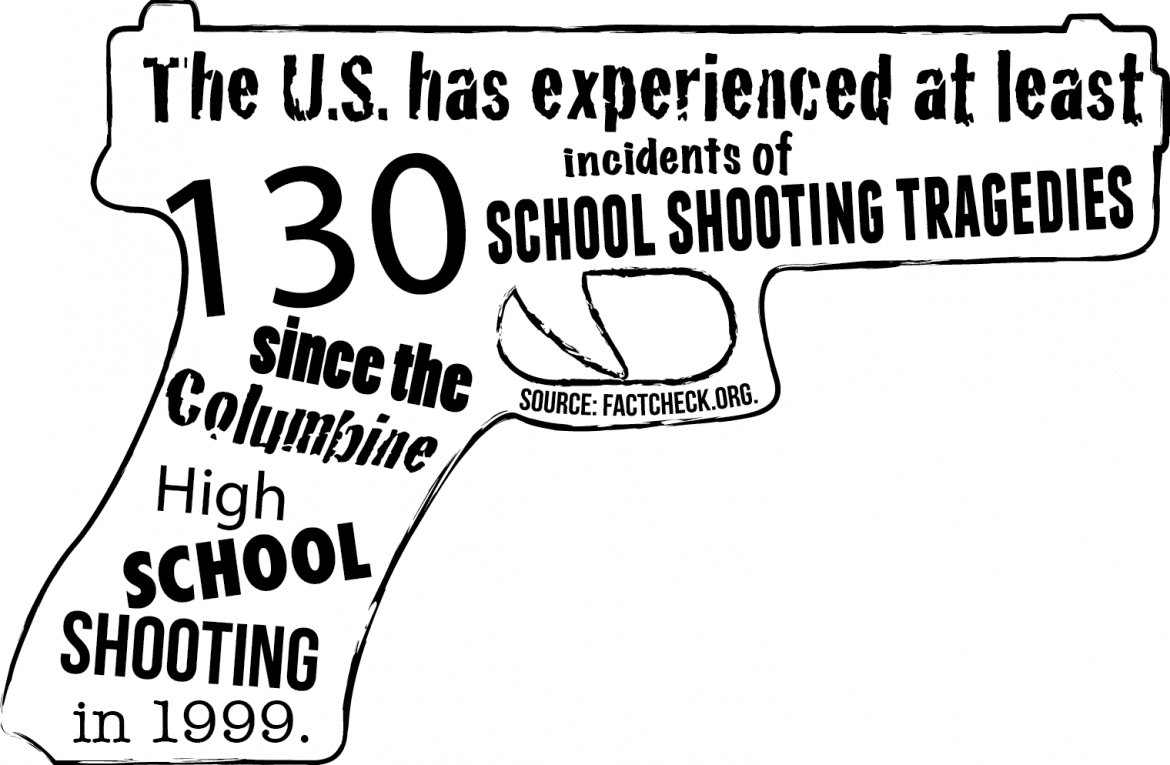On March 1, Gov. Mike Beebe signed a bill into law allowing college staff and faculty to carry concealed handguns, placing Arkansas among the ranks of 28 other states now permitting concealed weapons on college campuses.
Under the legislation, each individual school’s board of trustees will have the annual option to opt in or out of allowing faculty with their concealed carry license to bring their weapons onto school grounds.
Dr. John Simmons, chairman of Harding’s board of trustees, said a decision has not been made on whether Harding will allow concealed weapons on the university’s campus.
Dr. Bruce McLarty, who will succeed Dr. David Burks as president in the fall, said the Newtown shooting has created a flurry of legislation in states all over the U.S., and passions are running high over the issue everywhere.
“On one side, you have people who contend that universities are creating ‘unsafe zones’ by forbidding students to carry guns to defend themselves,” McLarty said. “At the same time, campus security officers are very concerned about possible scenarios where they might be called into a scene with an active shooter where they would be unable to determine which person with a gun was the actual shooter.”
Dr. BJ Houston, director of Harding’s criminal justice program, said she would be hesitant to allow faculty or staff to carry weapons on campus. Houston said while the idea of having an armed faculty to make students feel safer sounds nice, in reality it could be more of a danger than a help.
“Just because a person has his or her concealed weapon permit does not mean he or she is going to be proficient in the use of his or her weapon,” Houston said. “A person may not have a lot of experience firing his or her weapon. A person may have obtained a concealed weapon permit but may not be up to standards in the use of it or they may have never used it in a stressful situation.”
If given the option, Houston, who has her concealed carry license, said there is a possibility she would carry her weapon on campus, but she would have to give much thought to potential drawbacks of doing so. Houston said if Harding were to go in the direction of having more armed staff, she recommends it be in the form of a certified police department on campus.
Although Harding’s position has not been announced, students are weighing in with their opinions on the topic.
Junior political science major Laneigh Pfalser said since most colleges prohibit guns or any kind of weapons that could act as protection, she thinks having more armed officials would deter people from lashing out on campuses.
“If a shooter or any violent person knew that people on the campus or in the school were armed then that would make them re-think their decision to come on and start massively shooting at people,” Pfalser said. “We’re law-abiding citizens, especially at college campuses. We’re all grown adults. I feel like allowing the staff and faculty to have guns is a really good idea.”
Junior Kalvin Graham said he thinks professors should not be allowed to carry handguns because it would distract from the purpose of a university – learning and sharing wisdom. Graham said when a student is left wondering whether or not their teacher has a gun in their desk or a holster on their side, it detracts from the material being presented and distorts the institution as a whole.
“I’m not saying that safety is a bad thing … but I think to put safety and security in the hands of teachers kind of misses the point,” Graham said. “I think that long term, if that were to progress, the change in environment — where now teachers are teachers as well as security guards — would have a significant impact on the atmosphere on campus, just in the way that people view their teachers or in the way that teachers even behave themselves when they have that extra measure of power with them.”
Junior Will Lynn said he thinks it is a good idea for professors to carry concealed handguns, but only with additional training.
Lynn, who recently received his concealed carry license, said in addition to CHCL training, professors should have to know how to safely defuse a situation in a classroom full of students before they are allowed to bring a weapon into one.
Both Lynn and Pfalser said they think it will not have much of an impact on campus if Harding does indeed opt in to the decision.
“It may at first, whenever people first realize that some teachers may have guns,” Lynn said. “But once you get into the normal swing of it, you won’t really think about it. After that you’ll never see it, and hopefully the only time you may, you’ll be thankful for it.”
President David Burks said he appointed a committee headed by Dr. David Collins to study the recent legislation.
“We will discuss this matter at our next Cabinet meeting in early April,” Burks said. “I will then make a recommendation to our Board of Trustees at their regular meeting May 9, 2013. This is a complex issue and one that deserves careful consideration of all of the facts before making any decision.”
